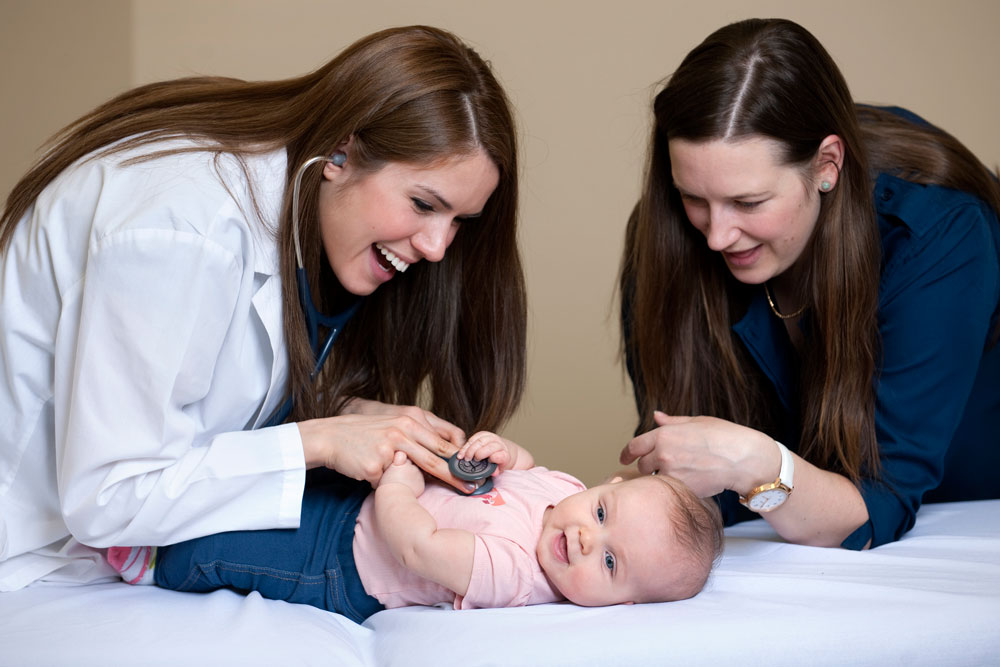
Study: Eating peanut while breastfeeding and early peanut introduction may help protect against peanut allergy in children
A new study led by researchers at the Children’s Hospital Research Institute of Manitoba and the University of Manitoba and published in the Journal of Allergy and Clinical Immunology suggests that infants whose mothers ate peanut while breastfeeding, and who are introduced to peanut by 12 months, may have a lower risk of developing a peanut allergy later in childhood.
The study investigated the relationship between mothers eating peanut while breastfeeding, timing of direct peanut introduction, and sensitivity to peanut at seven years of age, in infants who are at high risk of developing a peanut allergy due to genetic factors. It found that the lowest rate of peanut sensitization was among children whose mothers ate peanut while breastfeeding and directly introduced peanut before 12 months. If mothers ate peanut while breastfeeding but delayed direct introduction, or introduced peanut before 12 months but did not eat peanut during breastfeeding, the rate of peanut sensitization was significantly higher.
“What’s interesting about this study is that it is the first to consider maternal peanut consumption while breastfeeding together with the timing of peanut introduction to infants,” said Dr. Meghan Azad, scientist at the Children’s Hospital Research Institute of Manitoba and assistant professor in the Max Rady College of Medicine, Rady Faculty of Health Sciences, at the University of Manitoba. “Recent studies showing the benefit of early peanut introduction have inspired a reversal of national and international guidelines regarding peanut avoidance, but those studies did not address breastfeeding or maternal peanut consumption. So we were still missing an important piece of the puzzle.”
Azad, also a researcher at the AllerGen Network, noted that limitations such as the enrollment of exclusively high-risk children and measurement of sensitization instead of confirmed allergy suggest further research is needed, but the results show that breastfeeding and maternal peanut consumption are important factors to consider when looking at food allergy development and prevention in children.
“We hope to use these results as a starting point for more research to better inform guidelines for preventing food allergies in children,” said Dr. Tracy Pitt, first author of the study, pediatric allergist at Humber River Hospital and adjunct assistant professor at Queen’s University.
The prevalence of food allergy has increased in recent decades and approximately 7 per cent of Canadian children have a food allergy, with peanut being the most common. This study was funded by the Canadian Institutes of Health Research and the Allergy, Genes and Environment (AllerGen) Network of Centres of Excellence.
About the Children’s Hospital Research Institute of Manitoba: The Children’s Hospital Research Institute of Manitoba was established in 2001. CHRIM is the research division of the Children’s Hospital Foundation of Manitoba. At the Institute, more than 270 world-class pediatric medical researchers, technical staff, students and support staff are involved in over $10 million of research and clinical trial activity each year.
About AllerGen NCE: AllerGen NCE Inc., the Allergy, Genes and Environment Network (est. 2004), is a national research network dedicated to improving the quality of life of people suffering from allergic and related immune diseases. Funded by Innovation, Science and Economic Development Canada through the federal Networks of Centres of Excellence (NCE) Program, the Network is hosted at McMaster University in Hamilton, ON. Visit allergen-nce.ca for more information.
Media Contacts:
Rebecca Rallo
Director, Communications & Marketing
Children’s Hospital Research Institute of Manitoba
Tel: 204-272-3135
Email: rrallo@chrim.ca
Ilana Simon
Director, Communications & Marketing
Rady Faculty of Health Sciences, University of Manitoba
Tel: 204-789-3427
Email: ilana.simon@umanitoba.ca
Kim Wright
Director, Communications & Knowledge Mobilization
AllerGen NCE Inc.
Tel: 905-525-9140 ext. 26641
Email: kimwright@allergen-nce.ca






